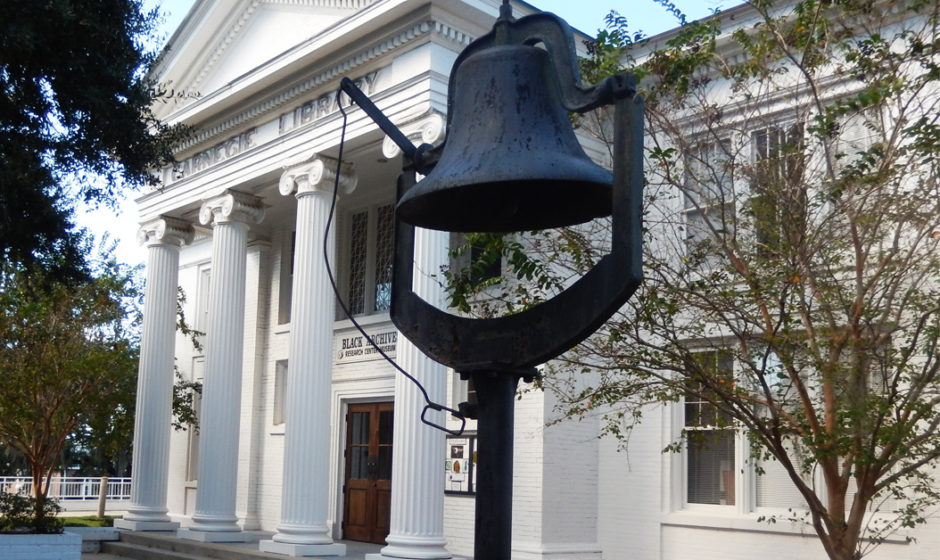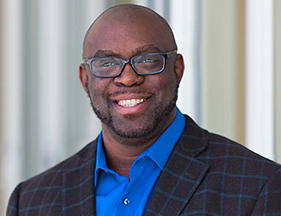FAMU Announces New Meek-Eaton Black Archives Director

Florida A&M University (FAMU) announced Timothy A. Barber as the next director of the Meek-Eaton Black Archives Research Center and Museum.
Barber, a FAMU alumnus, was the long-time executive director of the Black Archives History & Research Foundation of South FL, Inc. He is also the creator and founding director of the Historic Lyric Theater Cultural Arts Complex. History Professor Darius Young, Ph.D., has served as Meek-Eaton Black Archives interim director for the past year.
“Tim Barber brings a wealth of knowledge, experience and expertise to the Meek-Eaton Black Archives, one of the greatest treasures on our campus,” said Provost and Vice President for Academic Affairs Maurice Edington, Ph.D. “We are looking forward to him building on its rich legacy further developing this resource to its fullest potential.”
 FAMU Alumnus Timothy Barber
FAMU Alumnus Timothy Barber
Named in honor of Congresswoman Carrie Meek and founding director James N. Eaton, the Black Archives was established by a 1971 Florida legislative mandate. In 1976, the Carnegie Library became the founding home of the Black Archives Research Center and Museum, whose holdings include African art and artifacts, rare papers dating back to slavery, Blacks in the military, FAMU history, memorabilia, and regalia.
Barber gained his first experiences in the field of archives and museums being trained by Elizabeth Dawson, Ph.D., a research associate at the Meek-Eaton Black Archives.
“It is an honor to have been selected to lead the future of the Meek-Eaton Black Archives Research Center as the director,” Barber said. “The center has always been near and dear to my heart.”
A native of Miami, Barber earned an associate degree in electronic engineering technology, from Bauder College, in Oakland Park, Fla., and a bachelor’s degree in English and a master’s in history from FAMU. He received archival management certification from the Georgia Archives Consortium, Museum Management from the Jekyll Island Management Institute, and the Devos Cultural Arts Management Institute.
Incorporated in 1977, the Black Archives in Miami houses more than 40,000 collections and objects of enduring value that tells the story of the African American experience in South Florida. The organization shares exhibits, loan objects and support educational programming throughout South Florida. Barber began working at the Black Archives in Miami in 2003, as an intern in charge of cataloguing the collections before rising to assistant archivist, archivist, curator, historian and, finally, director, a role he filled for the last 13 years.
During his tenure, Barber created and expanded digital access to the Black Archives collection by acquiring three different grants from the Institute of Museums and Library Services. The grants allowed Barber to strengthen the access of its repository by building a searchable database, institutional advancement, new archives and museum professionals training, and facilitated the purchase an AO Quartz oversized scanner to begin digitizing and making available the Black Archives large newspaper collection featuring The Miami Times.
Barber is credited with managing the daily operations with a $1.5 million budget. He also led a $10 million construction project, which expanded the historic Lyric Theater to include the archives and administration of the organization, more than doubling the size of the National Register historic Lyric Theater. Under his direction, the archives created an endowment boosted by multi-year operational grants totaling more than $11.4 million. Before announcing his departure for FAMU, Barber secured a $2.8 million multiyear operational grant for the Black Archives.
Barber said he is delighted to be selected to return to his roots.
“I am excited to have the opportunity to bring back the knowledge, and expertise that I’ve been able to achieve over the years in this field. This knowledge will help me to lead FAMU’s Black Archives effectively,” said Barber, whose appointment is effective July1. “I look forward to advancing the technology at the museum, and growing a comprehensive digital humanities program, that will ensure that our story will be preserved and made available for future generations. This museum will work to celebrate the accomplishments and resiliency of Blacks in the U.S., by continuing to capture the powerful stories of success.”



